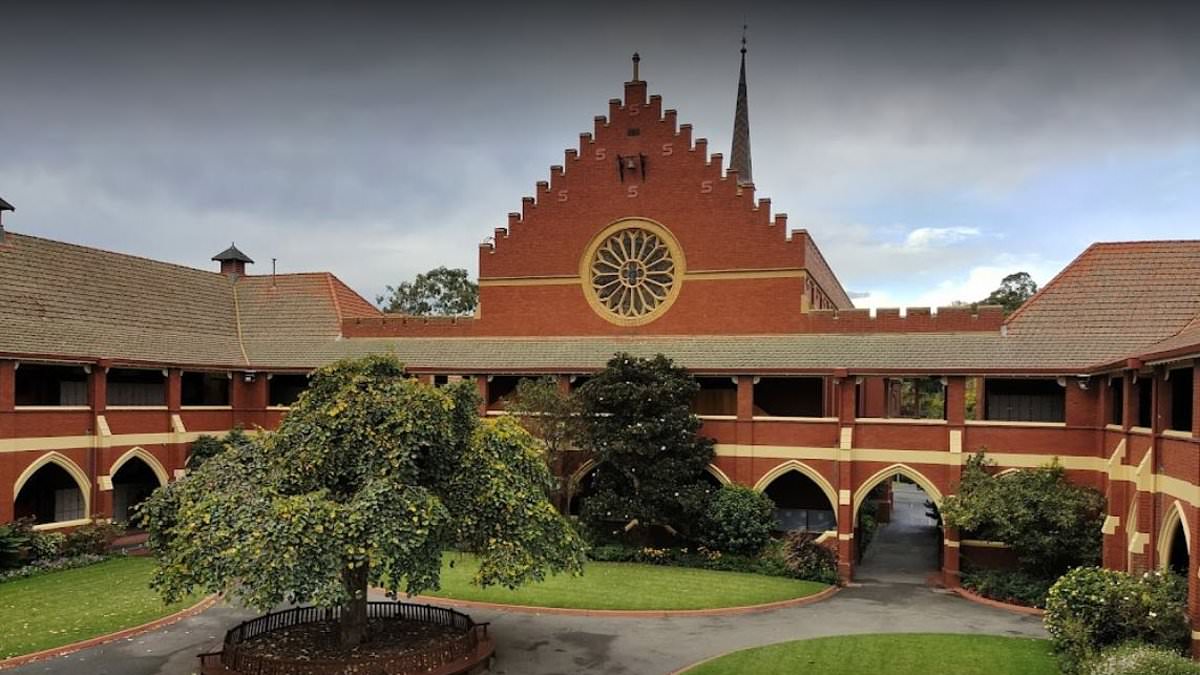Parents of students at a prestigious private boys’ school are furious over a proposal to end the school day at 1.50pm one day a week in 2025.
The change to class times was proposed by Scott Marsh, the principal of the elite Scotch College in Hawthorn, in Melbourne’s eastern suburbs.
In a Change.org petition, parent David Chu said the early finish was to accommodate ‘on the job staff training’ at the $40,000-a-year college.
‘This change would adversely affect students, parents and caregivers,’ he wrote.
‘Boys will now be compelled to take up new interests from a limited range of hobby subjects, engage in co-curricular activities, or leave school early.
‘Moreover, there will be added pressure on parents and caregivers to adjust their work commitments to accommodate a 1.50pm pick-up time for students who do not wish to pursue a new hobby subject.
‘For those parents and caregivers with well-established work schedules, managing the logistics of these changes could prove challenging.’
The petition gained more than 650 signatures in just three days.
‘As aptly described by another fellow signer, this is a breathtakingly arrogant move,’ one angry parent commented on the petition.
‘Our boys deserve the education we are paying for. Does reduced lessons hours mean reduced fees? Probably not!’ a mother wrote.
‘Cutting school hours by four periods every week undermines the substantial $40,000 annual tuition we pay and compromises the quality of education we expect and deserve,’ a fed-up father shared.
In an update on Thursday, Dr Chu announced Scotch College would retain traditional school hours in 2025 as a result of community pressure.
‘This outcome is directly attributed to the collective effort of our community, which gathered over 650 signatures in just three days,’ he wrote.
‘I am deeply grateful to each of you for your invaluable support and dedication. Your willingness to defend our school’s tradition has truly made a difference.
‘I want to thank the principal and the school administration for considering the voices within our community and making a decision that supports the best interests of the students.’
